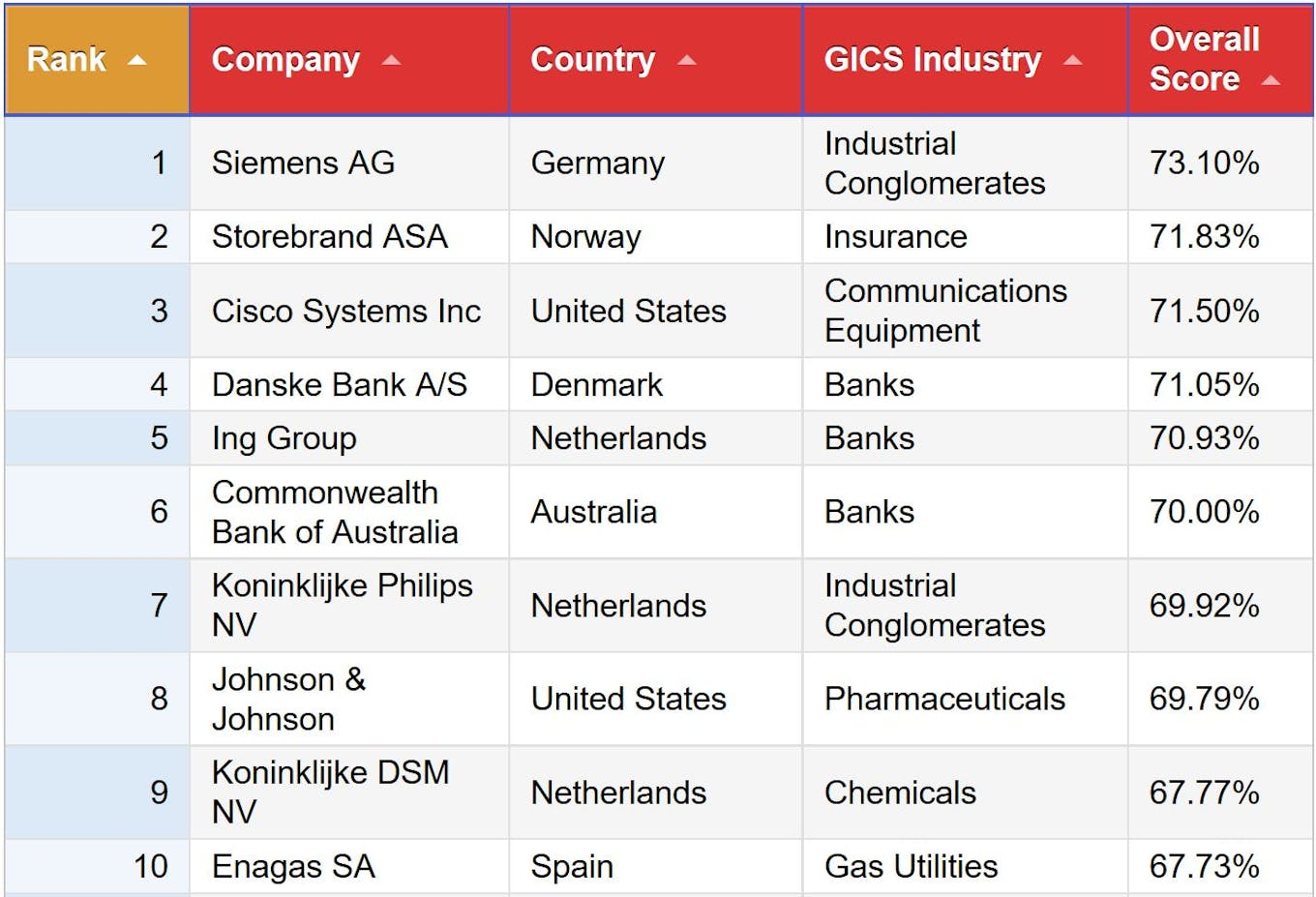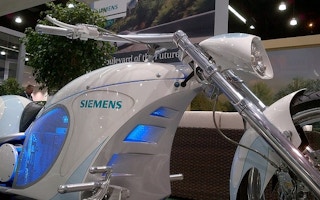Just 12 Asian firms feature in a global ranking of the world’s 100 most sustainable corporations, which this year was topped by German electronics giant Siemens.
To continue reading, subscribe to Eco‑Business.
There's something for everyone. We offer a range of subscription plans.
- Access our stories and receive our Insights Weekly newsletter with the free EB Member plan.
- Unlock unlimited access to our content and archive with EB Circle.
- Publish your content with EB Premium.
While this was a repeat of last year’s tally for the region, most Asian companies have fallen in this year’s Global 100 Most Sustainable Corporations in the World index, an annual sustainability performance ranking for global listed companies compiled by Canadian investment research firm, Corporate Knights.
Singapore property developer City Developments Limited (CDL) emerged as Asia’s most sustainable company, ranking 30th. It ranked 10th last year.
The only other Asian firms to appear in the top 50 were South Korean. Mining company POSCO ranked 35th, an improvement on 40th spot, which is now occupied by financial services giant Shinhan, itself down from 18th last year.
Two other Singapore companies feature in the ranking, telecommunications rivals Singtel (52nd) and StarHub (69th). StarHub ranked 8th in 2016, and was Asia’s most sustainable firm. Singtel didn’t feature last year.

Top 10 of the Top 100 Global Most Sustainable Corporations in the World. Image: Corporate Knights
Singapore marine, property and infrastructure giant Keppel Corporation and property business CapitaLand both dropped out of the ranking this year.
Not only were Japanese companies the most numerous from Asia in the ranking, they also showed the most improvement year on year. Pharmaceuticals firms Takeda (67th) and Astellas Pharma (85) both moved up the ranking, as did medical IT company Sysmex Corp (70). Electronics giant NEC (86) appeared in the rankings for the first time.
Michael Yow, research director for Corporate Knights, attributed the improved performance of Japanese firms to the country’s economic stability.
He praised Singapore firms despite their slide in the rankings. “For a relatively small country, for Singapore to feature three companies [in the ranking] is admirable. Compare this with a large economy such as China for instance,” he told Eco-Business.
“
From ranking to ranking, it is usually the same Asian corporate leaders that show up. Where are the others?
Michael Yow, research director, Corporate Knights
Hong Kong’s Hang Seng Bank also featured in this year’s ranking (55), while Chinese computing firm Lenovo (98) fell thirty places from last year’s 68th spot.
Yow said that compared to their counterparts in other regions, Asian companies are struggling with a lack of emerging sustainability leaders. “From ranking to ranking, it is usually the same Asian corporate leaders that show up. Where are the others?”
Overall, Asian companies’ average ranking in the index fell from 59th in 2016 to 63rd this year.
To improve, Yow said that Asian companies need to build stronger corporate social responsibility cultures.
“Stronger legislation around sustainability reporting, as in France, is a possible solution,” he said. He cited the country’s Grenelle II law, which was enacted in 2010 to mandate integrated sustainability and financial reporting for all large companies.
The ranking was announced last week on the sidelines of the World Economic Forum in Davos, Switzerland.
Corporate Knights chief Toby Heaps commented: “Global 100 companies are powerful exponents of the idea that doing more to help society and the planet can be financially rewarding.”
This year, Corporate Knights cast its net on 4,973 listed companies with a market capitalisation greater than $2 billion (USD) as of October 1, 2016.
Munich-headquartered Siemens AG, known for its electrification, medical diagnostics and industrial automation lines, outshone its peers with an overall score of 73.10 per cent, replacing last year’s table-topper BMW, which dropped out of the top 10.
BMW fell significantly because of a fall in energy productivity, higher staff turnover, and a lower score from its suppliers, Yow shared.
Siemens, meanwhile, scored well for energy and water efficiency, a responsible approach to paying taxes, low staff turnover, and greater female representation in the company’s senior management ranks.
European firms dominated this year’s index, with 59 companies on the list. This is followed by 25 from North America and two from South America. An African company has yet to feature in the index.
Addressing delegates in Davos, United Nations secretary-general Antonio Guterres, called businesses the “best allies” to fight climate change and poverty.
“Without the private sector we will not have the necessary innovation, we will not have the necessary capacity to discover new markets, new products, new services and be able to develop new areas of the economy,” Guterres said.
For the full list of the Top 100 Most Sustainable Corporations in the World, click here.










